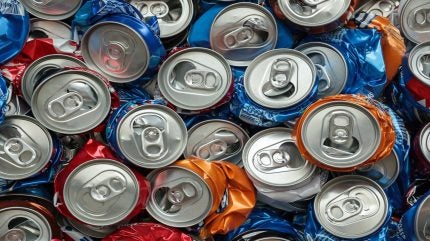
Returpack, the company overseeing the Swedish deposit return scheme (DRS), is set to increase the deposit fees on both polyethylene terephthalate (PET) and aluminium beverage containers.
The hike will see deposits on aluminium cans and small PET bottles rise from Skr1 ($0.090) to Skr2, and Skr2 to Skr3 for large PET bottles.
This adjustment in the deposit amounts is expected to bolster recycling rates in Sweden.
In 2023, the country achieved an 88.5% deposit rate, with 2.7 billion packages reentering the recycling loop.
Projections for 2024 are set to surpass this figure, with the DRS aiming to maintain a rate above 90%, thus offering significant environmental advantages.
Last year, the Swedish DRS contributed to a saving of 180,000 tonnes of carbon dioxide emissions, equating to the annual output of a mid-sized Swedish city.
The scheme not only conserves energy but also preserves natural resources by reducing the need for virgin materials such as oil and bauxite.
Consumer trust in the domestic deposit system is claimed to be high, as indicated by Returpack’s surveys.
The system encompasses more than 11,000 items, all of which require label and packaging updates by the manufacturers.
These packages must undergo testing, verification, and registration within Returpack’s system to confirm their recyclability into new beverage containers.
Additionally, the deposit machines require updates to accommodate the new deposit values.
The updated deposit packages are set to reach the Swedish market in the second half (H2) of 2025.
Returpack CEO Tomas Kjellker said: “The Swedish deposit return system has become a world leader thanks to 40 years of close cooperation between Returpack, producers and retailers, and engaged consumers.
“This makes a significant difference for the environment and climate. By increasing the deposit amount, we will give the system another boost.”
Returpack CMO Katarina Lundell added: “The refund is that little added value that makes the deposit return scheme work so well.
“Now we are turning it up a notch by increasing the deposit amount on all packaging, making it even more attractive for consumers to do the right thing.”




